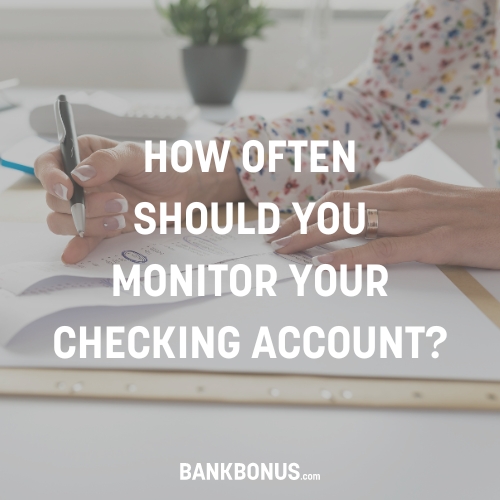JPMorgan Chase Bank, more commonly known as Chase, offers financial services to nearly half the households in the US. It’s no surprise that it is one of the first banks that come to mind when considering applying for a credit card.
Chase, like the vast majority of credit card providers, will always favor credit applicants that pass credit checks and have good to excellent credit scores. Before applying for any form of credit, make sure to work out your credit score for a better understanding of where your odds stand.
The second thing you can do to improve your chances is to find out which credit bureau your bank or credit union prefers when pulling credit reports.
Which credit bureau does Chase pull from?
Like many other card issuers, Chase uses all three major credit bureaus when making hard inquiries on their credit applicants. Experian seems to be their preferred credit bureau overall; however, they also use Equifax and TransUnion in some states and on specific financial products.
Since preferred credit bureaus for Chase can vary, let’s take a closer look at each Chase Visa and MasterCard credit card.
Chase Sapphire Preferred
- Preferred credit bureau: Experian
- Credit card perks: Free credit score access through Chase Credit Journey, fraud monitoring, and identity theft protection
- Annual Fee: $95
- Credit score needed: Good-Excellent
The Chase Sapphire Preferred card is designed with travelers in mind. Chase Sapphire cardholders can benefit from an introductory offer of $60,000 bonus points when spending $4,000 within the first three months.
Furthermore, cardholders get 25% added value on points redeemed for travel, 120-day purchase protection, auto rental damage waivers, travel and emergency assistance, and trip cancellation or interruption insurance.
Cardholders pay no foreign transaction fees with this card. They may benefit from triple points when spending on selected streaming services, grocery store purchases, and dining out (including take-out and eligible delivery services).
Chase Sapphire Reserve
- Preferred credit bureau: Experian
- Credit card perks: Free credit score access through Chase Credit Journey, fraud monitoring, and identity theft protection
- Annual Fee: $500 and then $75 per user
- Credit score needed: Good-Excellent
The Chase Sapphire Reserve card is one step from the Sapphire Preferred card. Additional benefits include a $300 annual travel credit and access to the introductory offer of $60,000 bonus points when spending $4,000 within the first three months.
Furthermore, cardholders get 50% added value on points redeemed for travel, 120-day purchase protection, auto rental damage waivers, travel and emergency assistance, and trip cancellation or interruption insurance. Cardholders pay no foreign transaction fees with this card and may benefit from triple points when dining out.
The Sapphire Reserve card allows complimentary airport lounge access and special benefits at selected luxury hotels and resorts.
Chase Freedom Unlimited
- Preferred credit bureau: Experian, however, may use TransUnion or Equifax in certain states.
- Credit card perks: Free credit score access through Chase Credit Journey, fraud monitoring, and identity theft protection
- Annual Fee: $0
- Credit score needed: Good-Excellent
The Chase Freedom Unlimited card comes with no annual fee and an introductory offer of 0% APR for the first year. Cardholders enjoy cashback on a range of products and services along with an additional 1.5% cash back on purchases up to $20,000 during the first year and extended warranty protection. Spending on this card is secure through purchase protection for 150 days and zero liability protection to put your mind at rest.
Chase Freedom Flex
- Preferred credit bureau: TransUnion predominantly in Nevada and Nebraska, any of the three in other states for the Chase Freedom Flex card.
- Credit card perks: Free credit score access through Chase Credit Journey, fraud monitoring, and identity theft protection
- Annual Fee: $0
- Credit score needed: Good-Excellent
The Chase Freedom Flex card comes with no annual fee and an introductory offer of 0% APR for the first year, just like the Freedom Unlimited card.
Furthermore, customers will get a $200 bonus should they spend $500 on the card within the first three months. Cardholders enjoy 5% cash back on travel through the rewards program and 5% cash back on a range of products and services categorized and rotated quarterly, along with extended warranty protection.
The security features of this card include 150-day purchase protection, cell phone protection, and zero liability protection. The Freedom Flex card has features for travelers, including auto rental collision damage waivers, travel, emergency assistance, and trip cancellation or interruption insurance.
Chase Ink Business Preferred
- Preferred credit bureau: Any of the three, predominantly Equifax in Washington D.C, Ohio, and Maryland, for the Chase Ink Business Preferred card.
- Credit card perks: Free credit score access through Chase Credit Journey, fraud monitoring, and identity theft protection
- Annual Fee: $95
- Credit score needed: Good-Excellent
The Chase Ink Business Preferred card is a business credit card with an introductory offer of 100,000 bonus points when spending $15,000 within the first three months.
The card also supports businesses by giving triple points for the first $150,000 spent on shipping, advertising, connectivity services, and business travel.
Employee cards are completely free, come with purchase protection, and have easy-to-set-up personalized notifications.
Credit bureaus and why they matter
Once you apply for a line of credit, your chosen financial institution will pay its preferred credit bureau to obtain a hard inquiry of your credit report. Each time a financial institution requests one of these credit inquiries, it is logged with their chosen credit reporting agency and shaves points off your credit score.
Most financial institutions rely on one preferred credit reporting agency when considering loan and credit applications. The credit bureau selected by a financial institution plays a substantial role in whether or not your credit application will be approved, especially in cases when applying for multiple forms of credit over twelve months.
If you apply for credit at multiple financial institutions that use the same credit reporting agency in a short period, your credit score will take a hit. The lender may also question why you require so much credit. Even if your credit score is still high enough for them to approve your loan or credit card application after the multiple hard inquiries, they might not approve your credit based on suspicion.
Knowing which credit bureau your financial institution will most likely be using can give you an edge to improve your odds of having your applications approved.
Credit Scores Differ Between Agencies
Each credit bureau keeps its own financial reports on individuals. Since they don’t consistently share information, your credit score and reports from different bureaus will likely vary depending on which credit reporting agency your previous lenders used. The variation in your credit score due to this blindspot might be enough to tip the scales between your credit being approved or declined.
It is in the best interest of lenders and credit card companies to keep their preferred credit reporting agency under wraps. However, patterns of hard inquiry data on message boards and dedicated websites to help potential borrowers or those seeking a credit card get some direction.
While the information is not 100% accurate, should you want to apply for three credit cards and discover that they use different credit bureaus, applying for all three in one day could improve your chances of getting accepted. For example, Chase may use TransUnion, Citi may prefer Experian, and Capital One – Equifax.
How can I improve my chances of being approved?
Several factors make up your credit score, influencing your approval chances. The higher your credit score, the more likely you are to tip the scales of approval for credit or loans in your favor. Banks like Chase often use FICO scores as one of the methods of assessing whether to approve credit or not.
Credit is usually only approved for individuals holding a credit score of 600 or more. Even so, you may not get the best deal possible, so improving your credit score is always worth your while. Should your credit score be below 600, you can do plenty of things to turn the situation around and increase your likelihood of being approved for Chase credit cards.
Here are some strategies for you to try:
- Reduce your Credit Utilization Ratio (CUR): Your Credit Utilization Ratio is calculated by establishing your maximum credit limit divided by the amount of credit you have taken out. The less debt you have, the higher the rate of available credit. Paying off your debts as soon as possible will balance your CUR and boost your credit score.
- Age your accounts: Avoid giving in to the temptation to close accounts that have been paid off. Credit agencies look for long-lasting commitments and stable accounts when making calculations, so keeping accounts open for lengths of time will always work in your favor and show that you are not financially impulsive.
- Avoid card churning: Credit card churners are cardholders who regularly close credit card accounts and open new ones to take advantage of introductory credit card offers. Some banks have policies to curb the practice; however, these policies are never ironclad. Credit scores of card churners may plummet should they get blocked for the practice or submit multiple credit card applications at once.
- Check your credit reports annually: A study by the Federal Trade Commission found that 5% of people in the United States have errors on the credit reports issued by the three major credit reporting agencies. Should you find errors on any of your reports, you are within your right to report the error to the credit bureau in question. The credit bureau is obligated to investigate any reports of errors on credit reports under the Fair Credit Reporting Act (FCRA).
- Pay your debts on time: Paying your debts on time, in full, and consistently will prevent you from paying late fees and penalties. Furthermore, it will prove to financial institutions and credit bureaus that you have your finances under control as they dive deep into your payment history when putting reports together.
- Pay off more than the minimum: When and if possible, always pay off more than your minimum installment amount.
- Don’t apply for credit unnecessarily: Lenders pull hard inquiries for every credit application. Since each hard inquiry shaves points off your credit score, you’re better off limiting and spreading out applications for new lines of credit as much as you can. Even though collecting a row of Visa and MasterCard cards in your wallet might be tempting, doing this will salvage and improve your credit rating.
- Avoid having applications declined: Always do your research and ask as many questions as you can before actually submitting a credit card, loan, or mortgage application. Your application will be declined if your credit score does not match their pre-determined requirements or overlays for a particular credit card. Being declined feels terrible, reduces your credit score, and looks like a black mark on your credit report.
- Declare all your sources of income: When applying for credit or a mortgage, ensure that you declare all your income streams (no matter how insignificant they may seem). Income-to-debt ratio establishes your creditworthiness, so leaving out sources of income will only increase your chances of having your credit application denied based on overlays or prerequisite criteria. The Consumer Financial Protection Bureau (CFPB) updated the existing card act rule to allow lenders to consider third-party income as long as an individual can prove that they have access to it. The rule applies to everyone, irrespective of marital status. That said, it aims to allow stay-at-home partners with access to household income to access credit should they need to.
How do I check my credit score?
Understanding how credit scores are calculated and where you stand on the scale is of the utmost importance before applying for any credit. Once every twelve months, you can obtain a copy of your credit reports from TransUnion, Equifax, and Experian through annualcreditreport.com for free.
FICO and VantageScore are the most widely used credit score structures in the United States. FICO is the most popular and is used by most lenders across the U.S. At the same time, VantageScore is a credit scoring structure created as a joint venture between TransUnion, Equifax, and Experian.
Credit scores are calculated using different categories of data from your credit report to estimate your overall creditworthiness. Credit scores generated through VantageScore and FICO both range between 300 and 850.
The higher your score is, the more likely you are to have your credit request approved. A good credit score is usually between 690 and 719, while a score above 720 is considered excellent.
Since VantageScore has unencumbered access to data from the three leading reporting agencies, they generate a single credit score based on reports from all three bureaus. On the other hand, FICO generates separate FICO scores based on the individual reports produced by TransUnion, Equifax, and Experian.
Frequently Asked Questions
What credit score do you need for Chase?
Much like mortgage overlays, credit comes with prerequisites set by the lender. Financial products offered by Chase usually require applicants to have a FICO score between 600 and 850. These score ranges mean that only people with good to excellent credit ratings will be able to qualify for their financial products.
Does Chase use VantageScore or FICO?
Chase and the vast majority of financial institutions across the United States use the FICO scoring system to classify credit applicants and approve or decline requests for credit.





Comments are closed.
Comments are closed here.